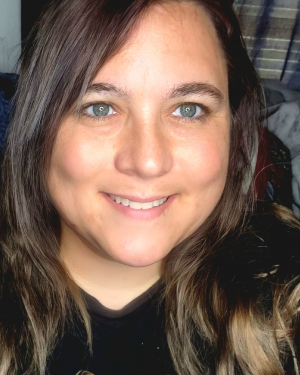They say no man is an island, but it can sure feel like one in the adoption community sometimes. All kids struggle and most parents are free to vent to their friends about those frustrations. However, when adoption is in the mix, adoptive parents face a bit of a stigma. Sometimes adoption introduces different types of challenges. However, talking to a friend about the pain you’re in can be met with an abrasive “Well you did ask for this didn’t you?” It can be hard to find support.
It’s not always phrased that way of course. Sometimes it’s more sugary “Oh you’ll miss this when they’re grown.” or “Count your blessings.” or “You prayed for these children.” And yes. All of that, to some degree or another, is truth. It is also absolutely useless in the face of pain. If anything, it is salt in a wound.
We know we’ll probably miss the echo of screeching and laughter in the house when they are grown up. We know they are blessings and that, yes, perhaps we prayed for these children. None of that is untrue for me. However, when I am crying because my kid just won’t behave no matter what I try, hearing those things feels like a jab in the gut.
This is why we need adoption support groups. Just as any community can have strife, of course, adoption groups can have challenges. But by and large, I’ve found the advice from seasoned parents to be helpful. It’s not always what I want to hear, but there is something amazing about meeting with someone, speaking about your worries, and having them validated by another person. I felt heard for the first time after adoption when I went to a group and ended up sobbing. Everyone in that room had felt similarly. Everyone there was supportive, helpful, and understanding.
Maybe you’re an introvert. I get it. Truly. I’m almost always happier staying home and not going to see groups of people I barely know. I needed it though. I needed connection almost as badly as I needed air at one point. It can feel so isolating when you can’t leave the house for fear of a child having an absolute meltdown in the grocery store when you tell them no to a candy bar. It’s difficult to explain to some people with biological children how parenting children from trauma is not the same. In reality, especially if a child is adopted from foster care, it will take years for that child to feel secure in the love of their adoptive parent. That seeds all assortment of difficulties.
If you’ve decided you’d like to try a support group but leaving the house is not an option, I have good news for you. There are online adoption support groups. Some are on Facebook, but there are external subscription-based services that offer a version of group therapy, one-on-one interaction with professionals, and a message forum to ask difficult questions to knowledgable people. The one I’m most familiar with is Oasis.
If you’re an extrovert, there are also plenty of groups across the country that are finally able to meet in person again. Google is your friend here, but also word of mouth. While church isn’t a safe place for everyone, there are many churches that offer adoption support groups. If you aren’t religious and would like a non-religious option, contact your local child-protection agency.
Some agencies have taken to offering groups to support their adoptive and foster parent community. Even if they don’t they can be a valuable resource.
I want to encourage you to try and find other adoptive families in your community and encourage one another. Reaching out can be so difficult sometimes. It is easy for me to get dragged down into melancholy when my life feels off the rails. I adore my children. Some of their problems are deeply rooted and complex. Attachment disorders are far more prevalent in adoption communities. For that kind of trauma, you need a network of people who believe you. Sometimes my kids will lie outright just to see what someone does. Yes, most kids will lie occasionally. At times, I genuinely have no idea most of the time who is telling the truth and who is lying. Kids can be amazingly convincing.
I especially want to encourage you if you are a foster parent to reach out to others. The way you are required to parent is so different from the norm that people mostly don’t understand. I cringe to think of the scrutiny I faced as a foster parent the first time we went out in public. My son threw himself on the floor and would not, for anything, get up. I had to carry him out of the store over my shoulder. I heard people discussing what they would have done in that situation. If I let it, I could feel ashamed; but really, there were very few options available.
A particular situation that only a foster or adoptive parent can relate to is this: I told my son he could not have a treat. He had misbehaved. I put them back on the shelf. He threw himself down on the floor, and cried “Ow you hurt me owwww! You’re not my mom get away from me!” over and over. I’m surprised I didn’t get arrested. It was a bad day. But see, the terror I felt was different than if it had been my biological child. They weren’t mine yet, and if CPS wanted to make an issue of it, they could take my kids and shred my license. I lived in terror of that thought for such a long time.
So, take it from a mama who understands, find yourself some support. You deserve it.

